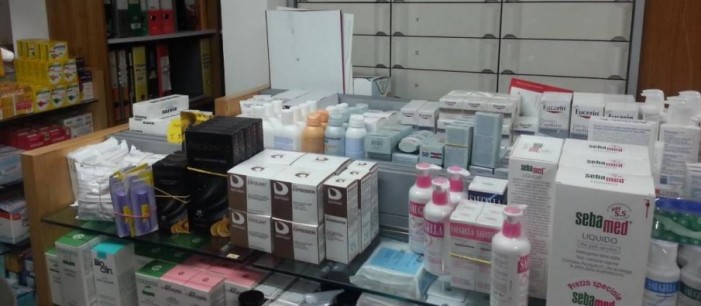
The Rama government has decided to raise the price of the fiscal stamps that are obligatorily affixed to pharmaceuticals traded on the national market. It has prepared a draft law to that effect that is expected to be approved in the parliamentary session of today.
The current price of a fiscal stamp is fixed at 6 lekë per stamp. The government has decided to change their price to 2.4% of the selling price. This means that the price for fiscal stamps will become more expensive for any medication with a selling price above 240 lekë. A fiscal stamp for expensive medication will therefore double several times over in price.
Based on previous experience, this increase in the fiscal stamp price will certainly be calculated into the price of medications, significantly raising the costs for the citizens.
The largest impact of this policy will be felt by pensioners, who overall consume more medication and have less income.
The government justifies the price hike with the argument that it will use a different type of fiscal stamp, which will increase the safety system. But this justification hides clear violations of the law, which makes this affair yet another healthcare scandal.
The fiscal stamp concession
In 2011, the former Berisha government gave out a concession for the production, application, monitoring, and tracking of the fiscal stamps for excise products, including alcohol, tobacco, and medication.
The main aspect in the tender procedure was the price for the fiscal stamps offered by the competing companies. The Swiss company Sicpa Solutions s.a. was announced winner, offering a fixed price of 2.4 lekë per stamp.
The government signed a contract wit Sicpa Solutions, which was however never published in the Fletorja Zyrtare (the state newspaper). This is not only scandalous, but also makes the contract de jure invalid.
Within two years after the contract was signed, in 2013, the same government raised, without explanation and allegedly as the result of corruption, the price of fiscal stamps to 6 lekë; nearly a three-fold increase from the original 2.4 lekë.
The price change of the fiscal stamps poses a threat to competition on the market place for public concessions; a contractor chosen on the basis of a low price is afterward “rewarded” by a price increase after the contract has been signed.
Proposed changes by the Rama government
Inheriting the same concession, the government is now planning another price increase, again illegally changing the initial conditions of the concession contract, which, officially, does not even exist.
This time, the alteration is more scandalous, because it doesn’t involve just a price increase, but the alteration from a fixed price to price based on percentage, which will greatly increase the profits of the concession holder.
Currently Sicpa Solutions has an annual income of €200,000 from the fiscal stamps. After the proposed price increase, this income will become €5.3 million, a more than 25-fold increase.
But the price increase is not all. The government also guarantees the concession holder that income, even if the Albanian market for medication will shrink in the coming years below its current volume of €128 million per year.
Under the terms of the new contract the payment for the fiscal stamps will no longer be made by the importer or producer of the medication, but by a governmental institution, the National Agency for Medications and the Control of Devices (AKBKP).
Moreover, the concession holder will be allowed to interrupt the production of fiscal stamps if the AKBKP fails to make the necessary payments on time, without holding any responsibility for the effects that such an interruption will have on Albanian citizens dependent on medication, or the companies that import those.
Finally, the new contract will completely shield Sicpa Solutions from any responsibility for its own possible failure to live up to the duties specified in the contract, which in fact will have a strong influence on the market for pharmaceuticals in Albania.
In short, under the new contract, the concession holder will have all the benefits of a guaranteed income, but none of the risks or responsibilities.
The government argues that all of this is a cost to be paid for a “new type” of fiscal stamp that will “improve safety.” But if that were the case, the only legal way for the government to implement such a new type, is to open a new and transparent procurement procedure, that will allow the market to set a fair price for such improved “safety.”
But in reality, the government has no such intention, and has waited until the last parliamentary session of the year to quickly move this abusive, corrupt, and clientelist decision through parliament.

